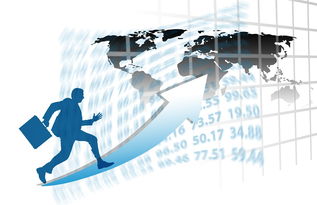In the realm of agriculture, technology has always played a pivotal role in shaping the way we grow, harvest, and distribute food. As we step into the 21st century, the impact of agricultural technology on modern farming is more profound than ever before. This essay aims to provide a comprehensive overview of how advancements in agricultural technology are revolutionizing the industry, increasing efficiency, and ensuring food security for a growing global population.
Precision Agriculture: The Future of Farming
Precision agriculture, often referred to as "smart farming," is a prime example of how technology is transforming traditional farming practices. It involves the use of information technology to optimize agricultural production, such as the application of fertilizers, pesticides, and water. GPS technology, combined with satellite imagery, allows farmers to monitor their fields in real-time, identifying areas that require more or less attention. This targeted approach not only saves resources but also reduces environmental impact by minimizing chemical runoff.
Genetic Modification and Biotechnology
Genetic modification (GM) and biotechnology have been at the forefront of agricultural innovation. GM crops are engineered to resist pests, diseases, and harsh environmental conditions, which can lead to higher yields and reduced crop losses. Additionally, biotechnology enables the development of crops with enhanced nutritional profiles, such as "golden rice" enriched with vitamin A to combat deficiency in regions where rice is a staple food. While there are ongoing debates about the safety and ethical considerations of GM crops, their potential to address food security and malnutrition is undeniable.
Automation and Robotics
The integration of automation and robotics in agriculture is another significant development. Autonomous tractors and drones are now capable of planting, monitoring, and harvesting crops with minimal human intervention. These machines can work around the clock, increasing productivity and reducing labor costs. Moreover, they can perform tasks that are dangerous or repetitive for humans, such as applying chemicals or navigating through challenging terrains.
Data Analytics and AI
Data analytics and artificial intelligence (AI) are playing increasingly important roles in agriculture. By analyzing vast amounts of data collected from various sources, such as weather patterns, soil quality, and crop health, AI algorithms can predict outcomes and provide recommendations for optimal farming practices. This predictive analytics helps farmers make informed decisions, such as when to plant, irrigate, or harvest, leading to more efficient resource use and higher crop yields.
垂直农业和水培技术

Vertical farming and hydroponics are innovative approaches to agriculture that are gaining traction, especially in urban areas. Vertical farming involves growing crops in stacked layers, either indoors or in controlled environments, which maximizes the use of space and reduces the need for land. Hydroponics, on the other hand, is a soil-less growing method that uses nutrient-rich water solutions to nourish plants. These methods can lead to higher yields per unit area, reduced water usage, and the ability to grow crops year-round, regardless of external weather conditions.
挑战与机遇
While the benefits of agricultural technology are clear, there are also challenges that must be addressed. The high costs associated with implementing new technologies can be a barrier for small-scale farmers. Additionally, there is a need for education and training to ensure that farmers can effectively use these technologies. Furthermore, there are concerns about the long-term sustainability and environmental impact of certain practices, such as the overuse of fertilizers and the potential for GM crops to disrupt ecosystems.
In conclusion, the impact of agricultural technology on modern farming is profound and multifaceted. It offers solutions to some of the most pressing issues facing the industry, such as increasing yields, reducing environmental impact, and ensuring food security. As technology continues to advance, it is crucial that we address the challenges and ethical considerations to ensure that these innovations are used responsibly and sustainably. The future of agriculture is bright, and with the right approach, we can harness the power of technology to feed the world and protect our planet for generations to come.









